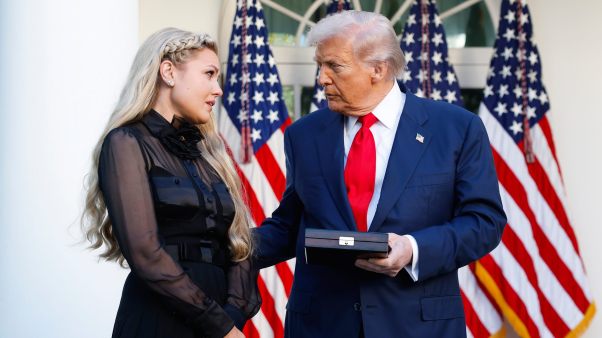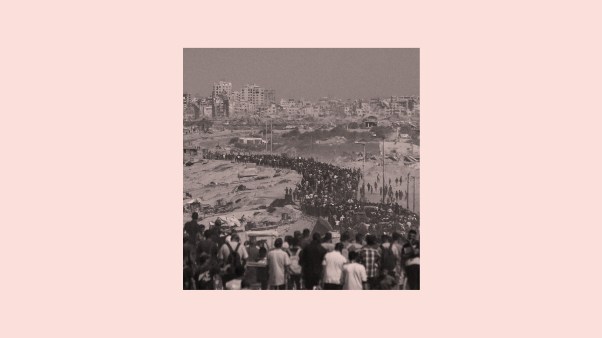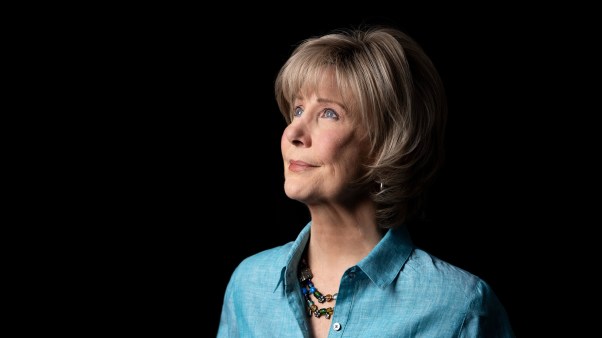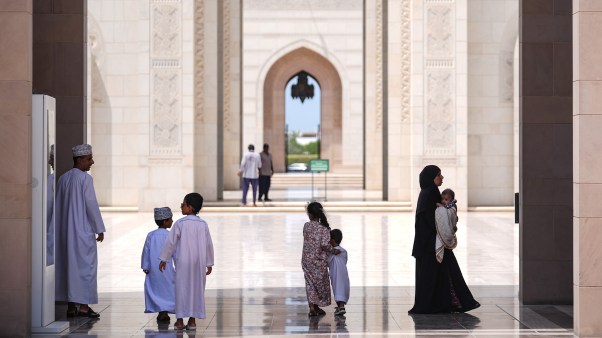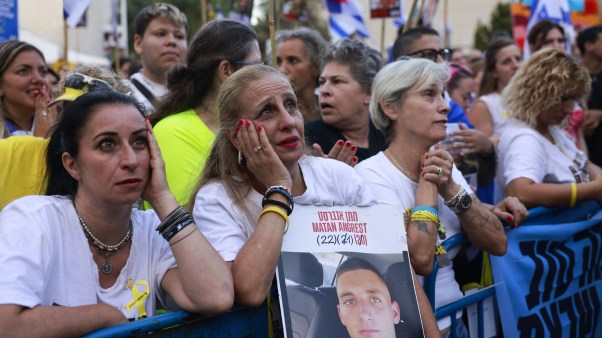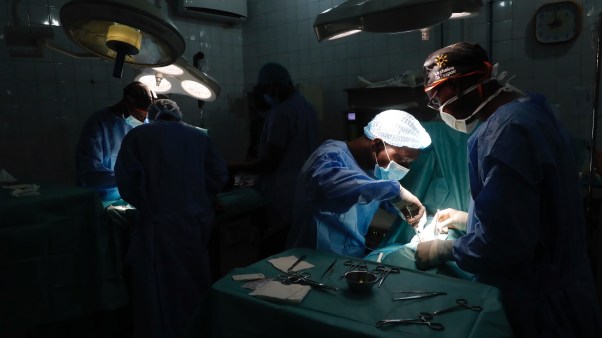Sister Barbara Ann Ford, a member of the New York-based Sisters of Charity order, was shot dead May 5 when two well-dressed men hijacked her pick-up truck in a busy section of Guatemala City. Sister Barbara’s killers later abandoned the truck a few blocks away and stole another vehicle, which they then discarded a short distance away.
Police called to investigate quickly described the crime as an act of delinquency gone wrong. But human rights activists claimed the sequence of events fitted a pattern consistent with other politically motivated killings in recent years.
The Mutual Support Group, Guatemala’s biggest rights organization, declared on May 7 that Sister Barbara’s killing was “an extra-judicial execution … of a political nature.”
Sister Barbara, a 62-year-old nurse, had helped prepare the church’s landmark 1998 report—Guatemala, Never Again!—which blamed the nation’s military for most of the deaths in the 36-year civil war that ended in 1996. More than 200,000 people, mostly indigenous Mayans, were killed or “disappeared”—abducted—during the conflict.
In a statement on May 11, the Guatemalan Catholic Bishops’ Conference said the nun’s death was symptomatic of an “anti-culture of death that undermines fundamental human dignity.” The killing also demonstrated “the incapacity of the authorities in charge of security and the application of justice.”
Responding to criticism, Interior Minister Byron Barrientos announced he was requesting assistance from the U.S. embassy here. A source in the Interior Ministry said agents from the Federal Bureau of Investigation would soon arrive in Guatemala.
Barrientos indicated that he took the unusual measure reluctantly, stating confidently that the foreign investigators would “demonstrate that it was a lamentable and shameful act of common delinquency.”
As a close aide to Julio Cabrera, Catholic Bishop of El Quiche, Sister Barbara ran the diocese’s mental health program, helping indigenous peasants recover from the trauma of war and repression.
“More than assistance with physical health, the people of El Quiche, who suffered so much during the war, asked for help with their mental health,” said Guillermo Monroy, director of social ministries for the archdiocese of Guatemala. “I’d say that Sister Barbara was one of 10 people in the world who knew the most about this field. At times peasants would arrive to spend hours crying with her, relieving themselves of the horrors of the conflict.”
The Mutual Support Group claimed that Sister Barbara’s work of “encouraging reconciliation among Guatemalans was “surely not appreciated by those responsible for the pain and grieving” of the war years.
In Guatemala, funeral masses were held in both Santa Cruz del Quiche, the provincial capital where Sister Barbara had worked, and at the cathedral in Guatemala City. Her body was then transported to the U.S. for burial.
On May 10, at a requiem mass at the College of Mt St Vincent in the Bronx, New York City, Sister Elizabeth Vermaelen, head of the Sisters of Charity in the U.S., said that Sister Barbara had “put her life on the line for the poorest of poor people.” Bishop Cabrera told mourners that he and other pastoral workers in El Quiche “make a commitment to keep burning brightly the light which she lit in our diocese.”
Ronalth Ochaeta, the former director of the archdiocese’s human rights office, claimed that her death “was a clear signal. This is the fourth time in 10 years that they have struck out against Monsenor Cabrera.”
Ochaeta mentioned three of Bishop Cabrera’s close collaborators killed in the 1990s, including Bishop Juan Gerardi, former bishop of the El Quiche diocese, who oversaw preparation of the 1998 report on Guatemala’s civil war. Two days after the report’s release, Bishop Gerardi was brutally murdered. Five people, including two members of the Presidential Guard, are currently on trial here in connection with the bishop’s death.
Ochaeta also spoke of the 1990 killing of Myrna Mack, an anthropologist who had worked with Bishop Cabrera investigating war refugees. Noel de Jesus Beteta, who confessed to the crime, was a member of the Presidential Guard. Tape recordings—in which Beteta reportedly claims that he was ordered by three colonels in the Presidential Guard to kill Mack—mysteriously disappeared last week, according to lawyers who are preparing a case against the three officials before the Inter American Court of Justice in San Jose, Costa Rica.
According to Ochaeta, who is now Guatemala’s ambassador to the Organization of American States in Washington, the Guatemalan government risks a cut in US aid if progress is not made in the investigation of Sister Barbara’s death.
“You’ve got to remember that the Sisters of Charity is a pressure group with a lot of weight, and the archbishop of New York is a man with a lot of political clout,” Ochaeta said.
Interior Minister Barrientos has maintained that the nun’s death was a simple case of car theft that went wrong when the nun resisted. He said a witness reportedly saw her argue with the two men shortly before one of them shot her at close range.
Monroy disputed this, saying Sister Barbara was a calm person who handled tense situations with ease. He had several times heard her tell co-workers that if confronted by car thieves, it was better to hand over the keys than to argue.
Copyright © 2001 ENI.
Related Elsewhere
See today’s related story about violence in Guatemala.Other articles on Sister Barbara Ann Ford’s murder include:
In Guatemala, activists again targets of violence — The Boston Globe (May 13, 2001)
Death of a quiet hero | American nun’s killing in Guatemala is believed to be politically motivated — San Francisco Chronicle (May 11, 2001)
Slain bronx nun laid to rest — New York Daily News (May 11, 2001)
Three men released in nun murder case — The Miami Herald (May 10, 2001)
Politics seen in U.S. nun’s murder in Guatemala — Reuters (May 8, 2001)
Hundreds mourn slain American nun — Associated Press (May 8, 2001)
American nun shot dead in Guatemala — New York Daily News (May 7, 2001)
The U.S. State Department’s 2000 Human Rights Report (released in February 2001) and 2000 Religious Freedom Report (released in September 2000) note other abuses in Guatemala.

